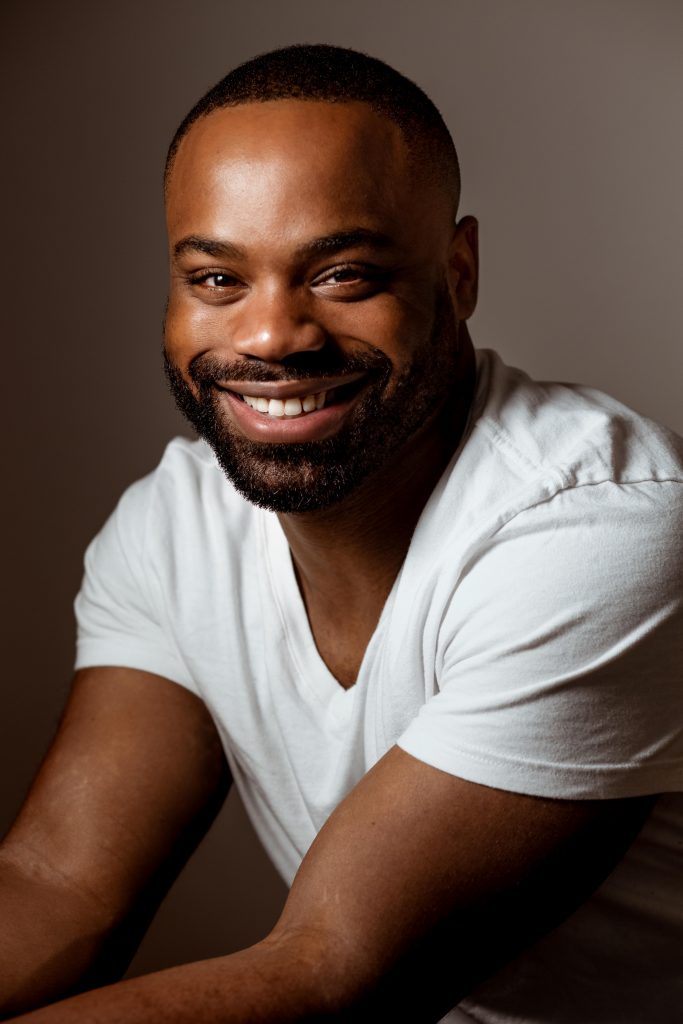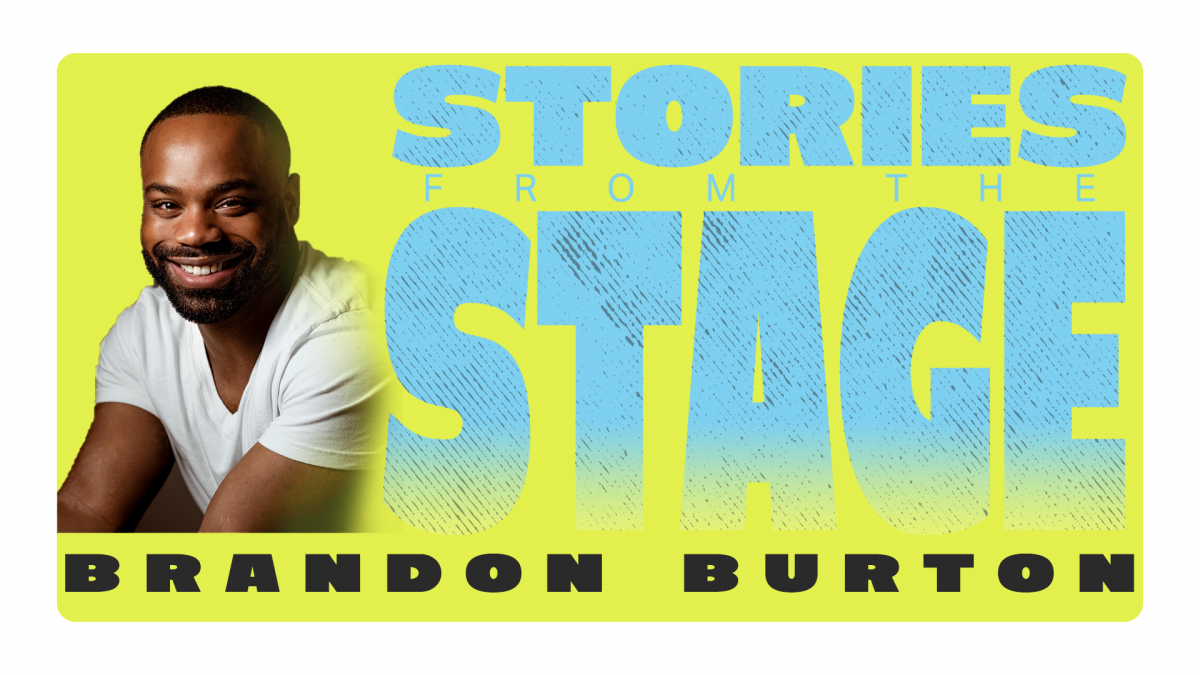This may come as a surprise to some, not so much to others, but Othello is a complex role to accept for the 21st century black actor. On one hand, he’s an incredibly deep, densely drawn character and one of the few that are built specifically for actors of color in the Elizabethan canon. On the other hand, he’s been reduced to some pretty nasty stereotyping. The character has a well documented history of blackface, and the optics of a white woman being strangled by a black man brings to mind the gut-dropping feeling we got in those last moments of Jordan Peele’s Get Out (Daniel Kaaluya hands wrapped around the neck of his captor/honeypot/devil in a white dress, Allison Williams, when suddenly red and blue lights wash the screen). So in my second year of graduate school, when I was called into my department chairs office to talk about playing Othello in the spring…I wasn’t sure what to do. I mean sure; in the name of the pedagogical experience, in the name of practice (because inevitably it wouldn’t be my last time playing the character) and well, the thing looks good on the resume, so why not? But does taking the part make me a sellout? Or worse…is it a full on soul sell?
Around this time, I was reckoning with myself, my artistry and this liquid prison I was attempting to construct. Growing inside me was this festering shadow of insecurity, imposter syndrome, and the ever present doom of letting everyone down, one I tried to bar up with Whiskey, Tequila and Rum. Little did I know, this shadow loved a drink, and despite my attempts to drown it, grew gills. I’ll spare you the rest of the bloody details but I can tell you with confidence that some people do indeed crack their skulls open on rock bottom. Others, however, bounce off stones of despair (it’s my band name, you cannot have it) and are given a chance to change direction.
I started writing letters to Othello in between classes, outpatient treatment, rehearsal and AA meetings on cold Sunday mornings (so much coffee and the squeaking of grey slush on the bottoms of winter boots). It’s not a ritual I had experienced before, but one of my Sunday Morning Crew was like “I write letters to myself and found xyz”. I thought that was a corny thing for a person to do, so I wrote letters to the characters I was cast as (a practice I still carry with me and yes, it is a far cornier endeavor).
We all “know” the play, and in that “knowledge” Othello is this larger than life character who looms over the canon/performer. If the past were to be prologue, he “should” be this gravitational force, the embodiment of strength and “manly-ness”. He’s jealous and angry or something along those lines. So rather than fall in lockstep with the mythic barnacles of the play, I re-read it with the fresh young eyes of a curious child at Disneyworld for the first time.
The first Act is the portrait of a man in love, a man with purpose, a man who has a grasp on what he wants the world to look like and how he can nudge the paradigm a bit closer to the shores of that promise. In my letters, I asked Othello to teach me what love was; specifically, to teach me what it was to be in love with oneself and one’s purpose (he later taught me that once you do that, falling in love is relatively easy). I asked him to remind me of what it means to see beyond what “is” into the realm of what “can be”. I asked him to demand my radical honesty. For a time it felt as though the letter went unheeded. Instead of waiting, I worked my ass off. I scanned and rescanned text, I battled tooth and nail for text to be re-entered into the cut, I linked arms with my castmates/peers to honor the work put in to tell the story as written. I fought for the story in the hopes that it would fight for me. And then, out of that big, looming shadow shrank there emerged a man. He looked a bit like me; a little stockier, a whole lot wiser and a generous smile. And we walked side by side through the play and he revealed things to me. Little secrets other people overlook.
Jealousy seems to be a trait oft associated with The Moor of Venice. I ask…where though? He’s one of the highest ranking generals in the nation, he’s got the hand of one of the most sought after bachelorettes in the nation, he talks business, pleasure and war with the Duke. Iago mentions jealousy, sure…but when does Othello? On the page, he wants to be the change he wants to see in the world. He chooses to partner with the only other human who sees him as such: who sees the sensitivity and the vulnerability in Othello, rather than upholding the expectations of manhood set upon him. With this realization, I felt a little hydrophobic daemon, resistant to my attempts to drown him, squeal away in a puff of brimstone and smoke. I dug deeper: when it is made known to him the possibility of deceit on the part of Desdemona, there is no time for jealousy when your heart is shattered. When you’ve been duped, hoodwinked, bamboozled, how can you blame anyone else but yourself? You can only perform the confusing task of picking up the shards of your heart and fighting through the wincing pain of putting it back together…even though you know it will not refract light the same way. Huh. That’s not jealousy. That’s good old fashioned world weary heartbreak and disappointment. In understanding a bit about him, I understood a bit more about myself. He wasn’t a monolith looming over me, he was right there, next to me, ensuring I honored every step in his shoes.
It’s a cliché to say that Theatre saved my life…so I won’t (it did though, *insert eyeroll*). I know that the characters aren’t actually leaping off the page to rescue me (I’m fully aware it’s my imagination+therapy+the work doing some heavy lifting). As much as I say that the characters are teaching me things, I know that ultimately it’s me, a room full of people, blood, sweat, tears, imagination, and ink on paper. Nor am I here to suggest that Theatre is a replacement to therapy, psychiatry, and/or AA/NA meetings (it isn’t, shout out to my therapist). But it can be a supplement (like B12). The gift and wisdom of the playwright is their ability to teach us lessons about what it means to be human. Sometimes those lessons are about success. They are often about failure; but always, there are lessons to be excavated, digested and shared. There are empathetic bridges to be built; within ourselves, to each other, and to the world into which we wake. And while that sounds like a gushy Barney sing along, the work is hard. It requires dedication, it requires an open mind and an open heart. Building empathetic bridges to truly see each other can be painful. Much like a journey to sobriety, it can feel pretty ugly (ha, I did one of those Shakespeare things). Much like nudging social norms and our existential paradigm towards a just and verdant society, you take it one day, one hour, one minute at a time.
It’s worth it.

Brandon Burton is a 2020 graduate of The Yale School of Drama Master of Fine Arts program. He can be seen in Spotlight on Play’s reading of The Baltimore Waltz streaming April 29th
